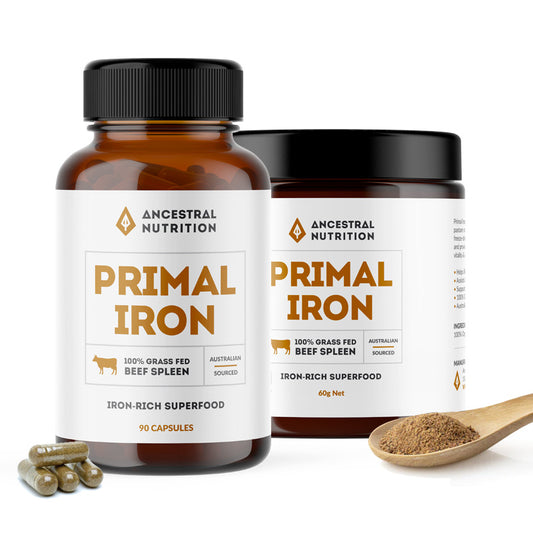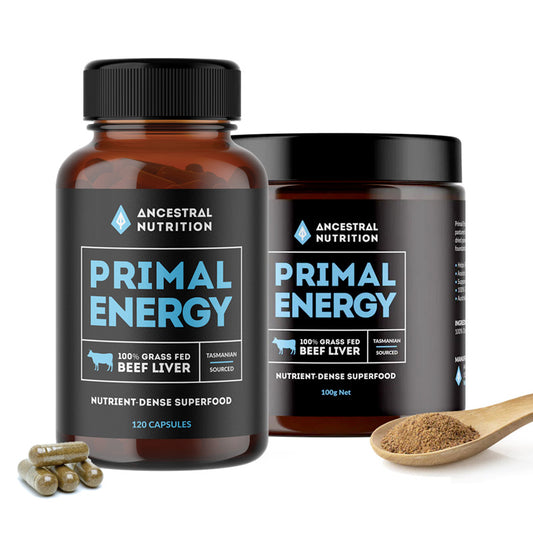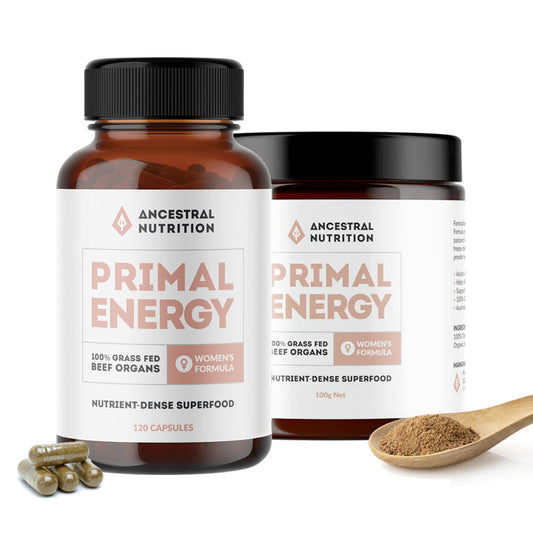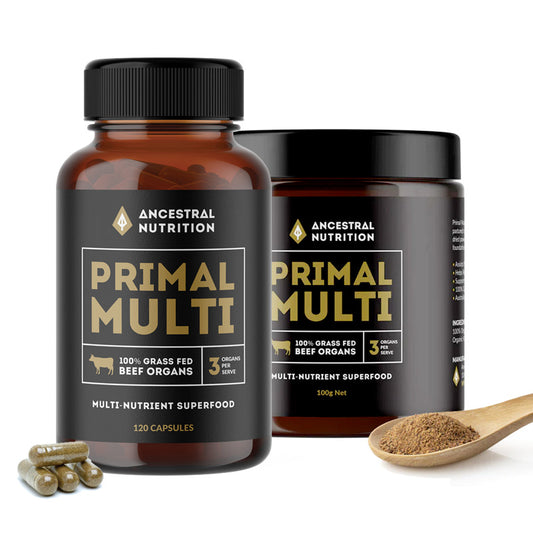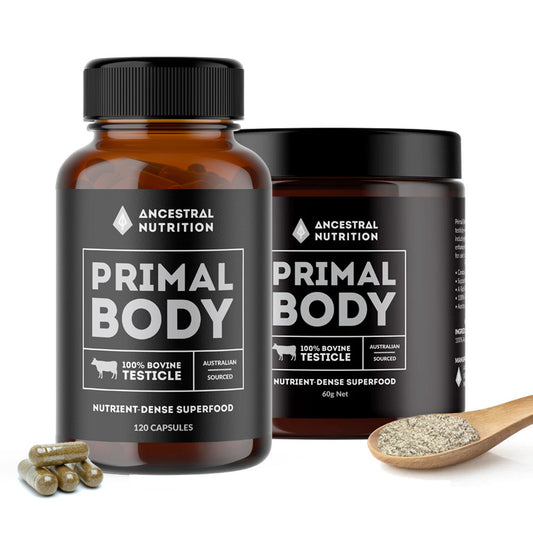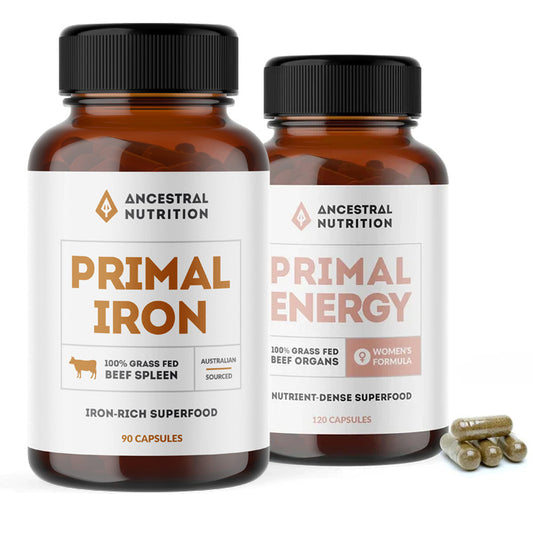Boost Your Vitality: Understanding Vitamin B12 and Its Importance for Adults Over 55
article by Ancestral Nutrition
As we age, it becomes increasingly important to prioritise our health and well-being. One essential nutrient that plays a crucial role in maintaining vitality and overall health, particularly for adults over the age of 55, is vitamin B12. In this article, we will explore the significance of vitamin B12, discuss the increased relevance for older adults, and provide insights into maintaining optimal levels for a vibrant and active lifestyle.
Understanding Vitamin B12
Vitamin B12, also known as cobalamin, is a water-soluble vitamin that plays a vital role in several key functions of the body. It is essential for the production of red blood cells, the maintenance of a healthy nervous system, and the synthesis of DNA. Additionally, vitamin B12 supports brain function, energy metabolism, and promotes a robust immune system.
Age-Related Factors and Vitamin B12 Deficiency
As we age, certain factors come into play that increases the likelihood of vitamin B12 deficiency among older adults. These factors include reduced stomach acid production, decreased absorption in the gut, and dietary changes. Consequently, the risk of developing a deficiency and related health issues, such as anemia, cognitive decline, and nerve damage, becomes more prominent.
Symptoms and Health Implications
Detecting vitamin B12 deficiency can be challenging as the symptoms often overlap with those of other health conditions. Common signs include fatigue, weakness, memory problems, mood changes, and numbness or tingling in the extremities. If left untreated, B12 deficiency can lead to more severe health complications, including pernicious anemia and neurological disorders.
Maintaining Optimal Vitamin B12 Levels
To ensure adequate vitamin B12 levels, it is crucial for adults over 55 to focus on their dietary choices and, in some cases, consider supplements. Here are some effective strategies for maintaining optimal vitamin B12 levels:
- Balanced Diet: Include vitamin B12-rich foods in your daily meals. Good dietary sources include lean meats, fish, dairy products, eggs, and fortified cereals. Vegetarians and vegans may need to rely on fortified foods or consider B12 supplements.
- B12 Supplements: Consult with your healthcare provider to determine if B12 supplements are necessary for you. Supplements can help compensate for reduced absorption or dietary restrictions. They are available in various forms, such as oral tablets, sublingual tablets, and injections.
- Regular Health Check-ups: Periodic blood tests can assess your vitamin B12 levels and identify any deficiencies. Your healthcare provider can guide you on the appropriate supplementation or dietary changes based on the test results.
- Medication Interactions: If you are taking certain medications they may interfere with B12 absorption. Discuss potential interactions with your healthcare provider and explore alternative options if necessary.
Maintaining optimal vitamin B12 levels is essential for adults over 55 to promote overall health, energy, and vitality. By understanding the increased relevance of vitamin B12 as we age and implementing strategies to ensure adequate intake, we can support our well-being and enjoy an active and fulfilling life. Prioritise your health, consult your healthcare provider, and take the necessary steps to optimise your vitamin B12 levels today!
How to Supplement Vitamin B12 with Beef Liver Capsules

If you are looking for a whole food and bio-available supplement that includes Vitamin B12 as well as a myriad of critical nutrients look no further than desiccated beef organ supplements.
Organ meats are THE most concentrated source of just about every nutrient, including vitamins, minerals, healthy fats and essential amino acids.

